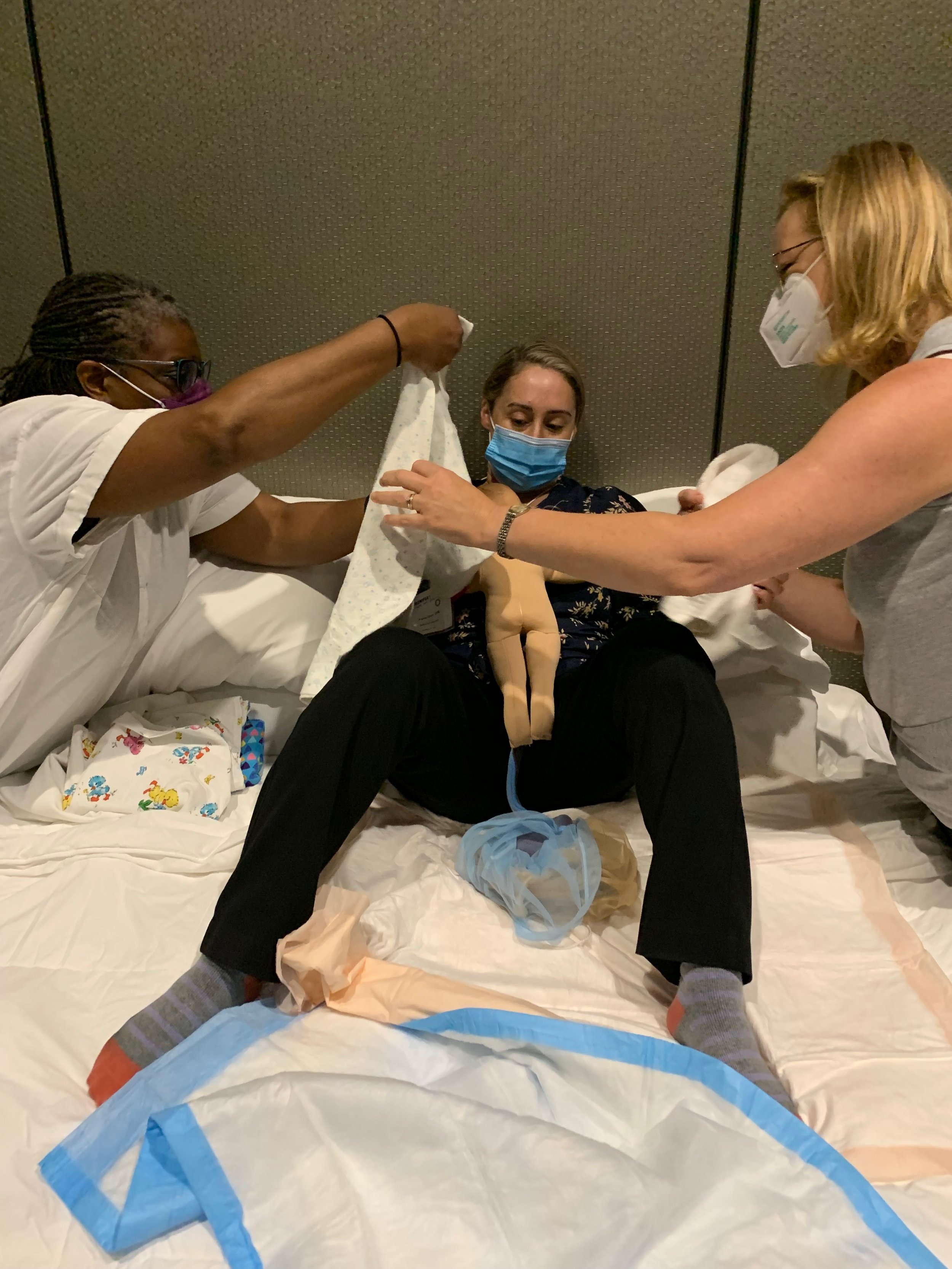
Workshops
Home Birth Academy offers several innovative, research-driven workshops for midwifery education programs, hospitals and other organizations interested in experiential interprofessional education in respectful care, home birth, and seamless transfer from community to institutional settings.
To bring HBA workshops to your institution, click on “Start Here” button, below.
RESPECTFUL CARE 2.0: Fixing those Blind Spots
We all believe we are providing respectful care, and yet many of the complaints after hospital births are about lack of respect and not being listened to. According to a review of sentinel events reported to the Joint Commission, failures in communication were the second leading root cause of severe maternal morbidity and mortality and the leading root cause of perinatal deaths and injuries.(1) In a 2019 study of birthing people, 17.3% overall experienced 1 or more types of mistreatment; discrimination along racial lines was reported by 32.8% of indigenous, 25% of Hispanic, 22.5% of black, and 14.1% of white birthing persons.(2) Sometimes bias and discrimination are blatant, but more often they are subtle and unconscious. Further, patient dissatisfaction has been associated with increased litigation. This workshop is about raising the bar to a new level of awareness, respect, and conscious behavioral change.
Purpose: In this hands-on, participatory workshop, attendees will have the opportunity to examine their unconscious behaviors and identify blind-spots in their communications skills. Through role-playing and discussion, attendees will hone their skills and establish enhanced techniques of respectful verbal and nonverbal communication.
Intended Participants: Doctors, PAs, NPs, Midwives, Nurses, Techs, Unit Coordinators, EMTs, Paramedics, Social Workers, Students (medical, nursing, etc.)
Time Frame: 5 hours (with breaks)
Cost: $150/ participant (minimum: 8), plus travel expenses for HBA faculty
References:
Brennan RA, Keohane CA. How communication among members of the health care team affects maternal morbidity and mortality. J Obstet Gynecol Neonatal Nurs. 2016;45(6):878–884 [PubMed] [Google Scholar]
Vedam, Saraswathi, et al. "The Giving Voice to Mothers study: inequity and mistreatment during pregnancy and childbirth in the United States." Reproductive Health 16.1 (2019): 1-18.
SEAMLESS TRANSFER FROM HOME TO HOSPITAL
One important factor in the safety of home birth is the capacity for seamless transfer from one setting to the other. Countries with the best outcomes uniformly have more integrated systems for transfer from home to hospital than we do in the U.S.. In 2013, the Home Birth Summit gathered leading thinkers from all stakeholder groups, including physicians, midwives, nurses, doulas, childbirth educators, hospital administrators and liability insurance providers, and created a consensus statement that included, among other things, a mandate to create a more integrated system in the U.S.(1)
Purpose: This hands-on, participatory workshop provides participants the opportunity to experience home birth transfers from the perspectives of transferring midwife, client, partner, EMT, and receiving providers. Time and guidance will also be given for participants to create a draft of transfer guidelines for their institution, and an orientation to suggested transfer forms and plans for follow-up and evaluation of transfers.
Intended Participants: Clinicians and staff involved in transfers of care from home to hospital
Time Frame: 5 hours (with breaks)
Cost Range: $150/ participant (minimum: 8), plus travel expenses for HBA faculty
References:
Summit, Home Birth. "Best practice guidelines: Transfer from planned home birth to hospital." Bit. ly/2BtbiWb. Published May (2014).



